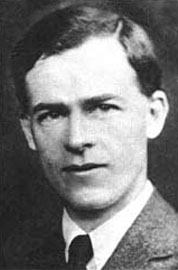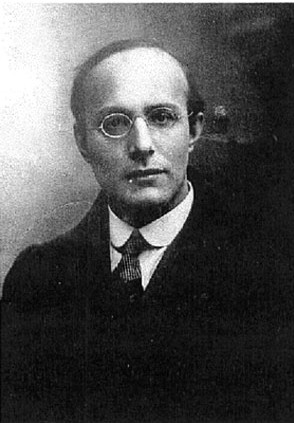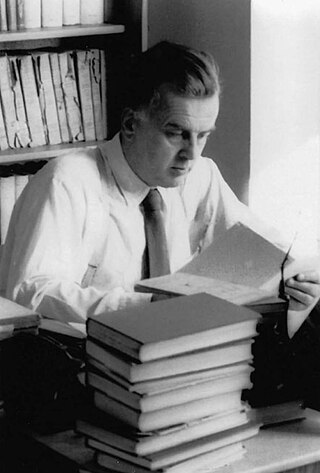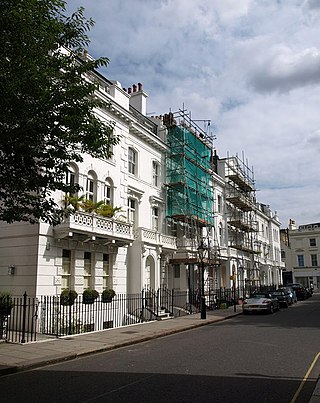Robert Nandor Berki | |
|---|---|
| Born | 12 July 1936 |
| Died | 17 September 1991 |
| Occupation | Political scientist |
| Employer |
|
Robert Nandor Berki (1936-1991), who published as R. N. Berki, was a Hungarian-British political scientist. [1]
Robert Nandor Berki | |
|---|---|
| Born | 12 July 1936 |
| Died | 17 September 1991 |
| Occupation | Political scientist |
| Employer |
|
Robert Nandor Berki (1936-1991), who published as R. N. Berki, was a Hungarian-British political scientist. [1]
Berki was born on 12 July 1936 in Budapest, and educated from 1941 to 1952 at the Catholic Piarista Convent School in Budapest. After working for a year in the Hungarian government's land redistribution department, he studied classical music and jazz at a Budapest music academy. Escaping Hungary after the Hungarian Revolution of 1956, he managed to get to Britain in 1957. [1]
Attending evening classes, Berki gained O- and A-levels, and entered London School of Economics in 1961, securing a first-class degree in international relations in 1964. In 1962 he married Etelka Taph, also Hungarian, whom he had met at a jazz club in Stalintown near Budapest. He gained his PhD from Cambridge University, writing a thesis supervised by E. H. Carr on the political thought of Hegel and Marx. [1]
In 1967 Berki became a lecturer in politics at the University of Hull. He stayed there until his death, becoming professor of European political and social theory and director of the Institute of European Studies in 1984. He died of a brain haemorrhage in Hull on 17 September 1991. [1]

Bertrand Arthur William Russell, 3rd Earl Russell, was a British mathematician, philosopher, and public intellectual. He had influence on mathematics, logic, set theory, and various areas of analytic philosophy.

Michael Polanyi was a Hungarian-British polymath, who made important theoretical contributions to physical chemistry, economics, and philosophy. He argued that positivism is a false account of knowing.

Karl Mannheim was an influential Hungarian sociologist during the first half of the 20th century. He is a key figure in classical sociology, as well as one of the founders of the sociology of knowledge. Mannheim is best known for his book Ideology and Utopia (1929/1936), in which he distinguishes between partial and total ideologies, the latter representing comprehensive worldviews distinctive to particular social groups, and also between ideologies that provide support for existing social arrangements, and utopias, which look to the future and propose a transformation of society.

George Douglas Howard Cole was an English political theorist, economist, and historian. As a believer in common ownership of the means of production, he theorised guild socialism. He belonged to the Fabian Society and was an advocate for the co-operative movement.

Karl Paul Polanyi, was an Austro-Hungarian economic anthropologist, economic sociologist, and politician, best known for his book The Great Transformation, which questions the conceptual validity of self-regulating markets.
Cyril Edwin Mitchinson Joad was an English philosopher, author, teacher and broadcasting personality. He appeared on The Brains Trust, a BBC Radio wartime discussion programme. He popularised philosophy and became a celebrity, before his downfall in a scandal over an unpaid train fare in 1948.

Bhikhu Chotalal Parekh, Baron Parekh, is a British political theorist, academic, and life peer. He is a Labour Party member of the House of Lords. He was Professor of Political Theory at the University of Hull from 1982 to 2001, and Professor of Political Philosophy at the University of Westminster from 2001 to 2009. He served as president of the Academy of Social Sciences from 2003 to 2008.

Ágnes Heller was a Hungarian philosopher and lecturer. She was a core member of the Budapest School philosophical forum in the 1960s and later taught political theory for 25 years at the New School for Social Research in New York City. She lived, wrote and lectured in Budapest.
Thomas Burton Bottomore was a British Marxist sociologist.

Robert James Martin Wight was one of the foremost British scholars of international relations in the twentieth century. He was the author of Power Politics, as well as the seminal essay "Why Is There No International Theory?". He was a teacher of some renown at both the London School of Economics and the University of Sussex, where he served as the founding Dean of European Studies.

Jelly d'Aranyi, fully Jelly Aranyi de Hunyadvár (Hungarian: Hunyadvári Aranyi Jelly was a Hungarian violinist who made her home in London.
Cedar Paul, néeGertrude Mary Davenport was a singer, author, translator and journalist.
Adila Fachiri was a Hungarian violinist who had an international career but made her home in England. She was the sister of the violinist Jelly d'Arányi, with whom she often played duets.
György Lukács was a Hungarian Marxist philosopher and literary critic.

History and Class Consciousness: Studies in Marxist Dialectics is a 1923 book by the Hungarian philosopher György Lukács, in which the author re-emphasizes the philosopher Georg Wilhelm Friedrich Hegel's influence on the philosopher Karl Marx, analyzes the concept of "class consciousness," and attempts a philosophical justification of Bolshevism.
Anthony Harold Birch was a British scholar and an expert in British politics and comparative politics. He was a leading figure in the development of Britain's distinctive school of political science. Political historians have cited his influential works on representation, the British government, federalism, nationalism, and national integration extensively.
Crisis theory, concerning the causes and consequences of the tendency for the rate of profit to fall in a capitalist system, is associated with Marxian critique of political economy, and was further popularised through Marxist economics.

Hereford Square is a garden square in South Kensington, London SW7. It lies to the west of Gloucester Road, which forms the east side of the square. Wetherby Place is the western continuation, running off the north-west corner of the square.

Rethinking Multiculturalism: Cultural Diversity and Political Theory is a 2002 non-fiction book by the British political theorist Bhikhu Parekh and published by Harvard University Press. It creates and defines multiculturalism in the form of political theory as well as political practice in the modern era, being based on Parekh's experience of Multiculturalism in British society as well as other areas around the world. Parekh's book addresses several topics, primarily multicultural politics, as well as the practice and theory behind addressing these politics.
Anant B. Parekh is professor of Physiology at the University of Oxford and a Fellow of Merton College, Oxford.